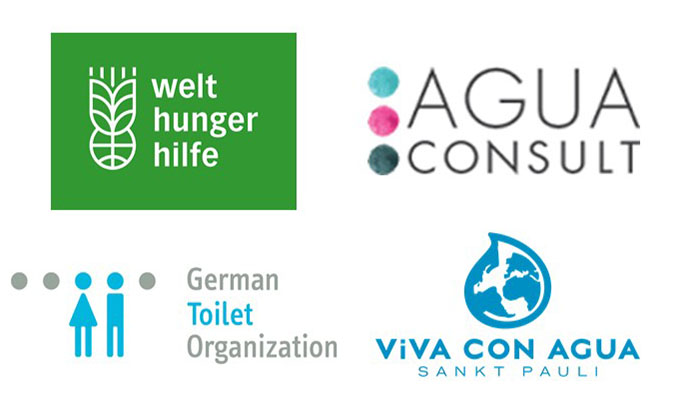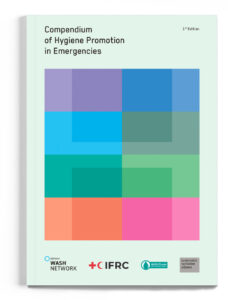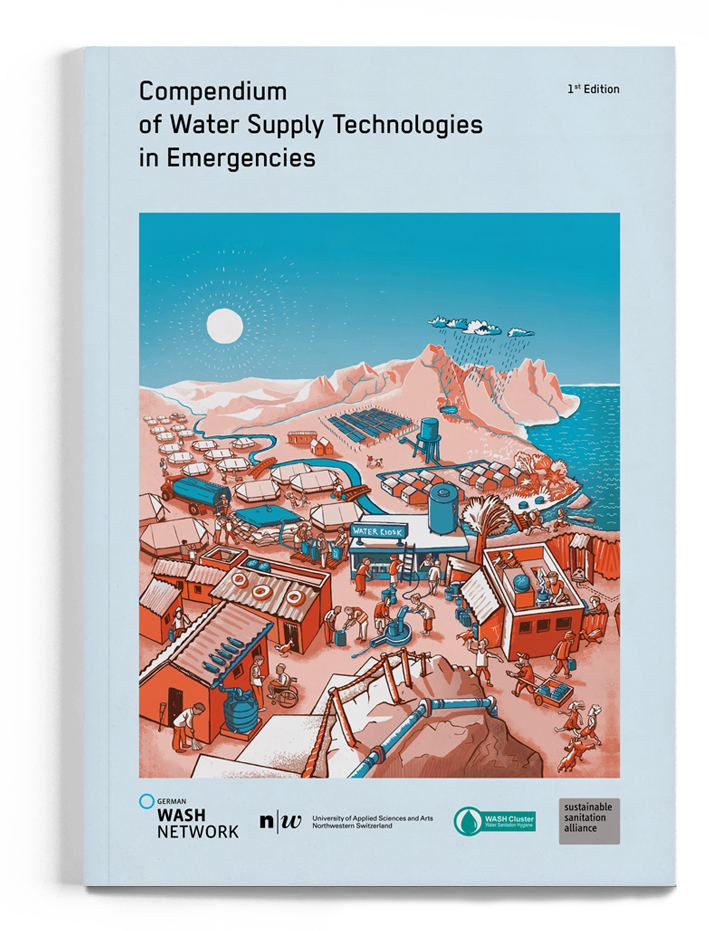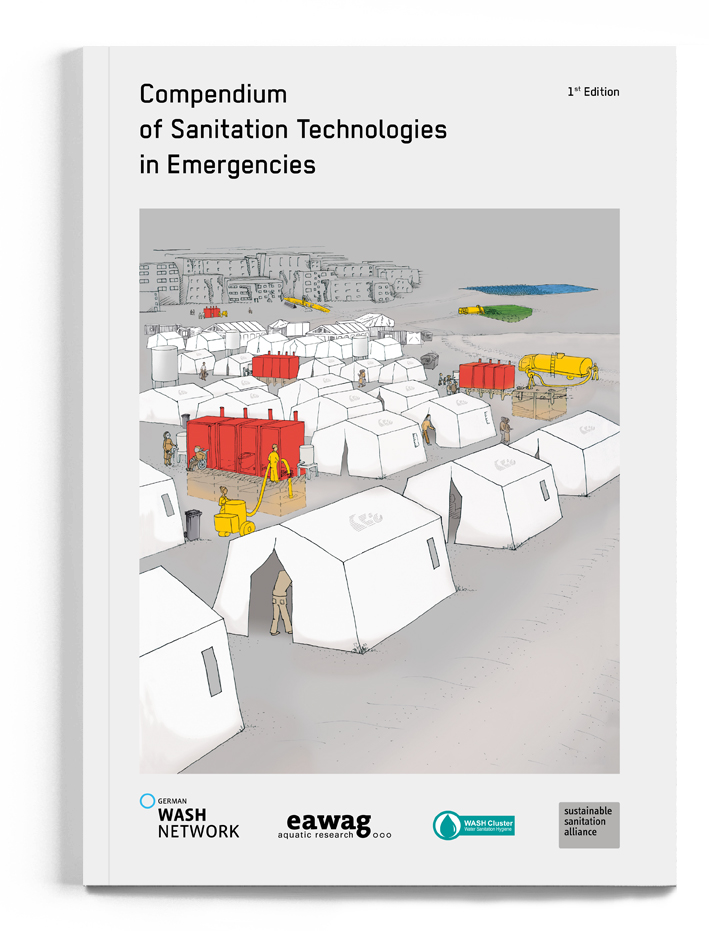Stockholm Wasserwoche 2018

Sustainable Service Initiative
A Morning of Systems – Part II
Translating WASH Systems into Practice: What can we contribute? What are the learnings? How can we better work together?
Trotz jahrzehntelanger Bemühungen sind Wasser- und Sanitärversorgung in vielen Entwicklungsländern nach wie vor unzureichend. Durchschnittlich sind 30% aller Handpumpen in Afrika kaputt, weitere 40% sind in ihrer Funktionalität eingeschränkt. Ob eine Pumpe dauerhaft funktioniert oder nicht, ist das Ergebnis des Zusammenwirkens vieler Elemente in einem komplexen System: Behörden, Geldgeber, TechnikerInnen, NutzerInnen und Technik müssen so zusammenarbeiten, dass die Pumpe durch regelmäßige Wartung möglichst gar nicht erst ausfällt und wenn sie einmal kaputt ist umgehend repariert wird.
Während ganzheitliches, systemisches Denken schon lange im Gesundheit-, Bildungs- und Umweltbereich eingeführt ist, ist der Ansatz bei der Wasser- und Sanitärversorgung noch relativ neu. Dabei ist die umfassende Stärken- und Schwächenanalyse unterschiedlicher Funktionsbereiche, die enge Zusammenarbeit mit den zuständigen Behörden und allen weiteren am System Beteiligten (Forschung, Regulierung, Öffentlicher- und Privatsektor, Zivilgesellschaft) eine wesentliche Voraussetzung für eine distriktweite Versorgungsplanung. Darüber hinaus ist die Klärung der jeweiligen Rollen und Zuständigkeiten von Bedeutung. In der Praxis bedeutet dies vor allem den Schwerpunkt der Projekte vom Aufbau von Infrastruktur (Pumpen und Latrinen) hin zur Unterstützung der lokalen Behörden und anderen Dienstleistern zu verlagern, die vor Ort die Verantwortung für die Bereitstellung von Wasser- und Sanitärversorgung und Hygiene tragen.
Die Sustainable Service Initiative (SSI) ist eine Nachhaltigkeitsinitiative der Welthungerhilfe gefördert von Viva con Agua, in Partnerschaft mit Aguaconsult und der German Toilet Organization mit dem Ziel den Systemansatz im WASH Sektor umzusetzen.
Im Rahmen der Stockholm Weltwasserwoche wird die SSI einen Worshop zum Thema am 27. August, 10:30 – 12:00 Uhr im Citykonferensen Ingenjörshuset Malmskillnadsgatan 46, Stockholm, Sweden veranstalten.
Veranstalter
Sustainable Service Initiative (SSI)
In Zusammenarbeit mit

Die Zusammenfassung der Session ist nur in Englisch verfügbar
Summary
The seminar showed a strong representation of NGOs, many already engaged in sustainability initiatives, where most have some or extended experience in a systems-based approach. Five initiatives, namely the Sustainable Services Initiative (SSI), USAID SWS, A4C, SuSWASH and A4C introduced their focus and specialization when taking a systems-based approach. New developments regarding the integration of sanitation and hygiene into the Sustainability Building Blocks promoted by the A4C were presented by the SSI. The Oxford University, a USAID SWS learning partner, runs the REACH programme and gave insights from achievements in Kenya and beyond.
In table discussions, participants found that a main challenge for organisations to take the systems approach are funding structures of donors due to relatively long implementation time. For starting systems strengthening with government support (where formal governments are in place), it is necessary to show success and have a common monitoring system in place in which all engaged partners feed into. For strengthening the sanitation and hygiene components in a systems-based approach, the household level needs to be more strongly considered. Tools, similar to the Excreta Flow Diagrams (SFDs) would be useful, if adaptable to rural contexts and considering not only the sanitation chain, but all WASH components and considering the building blocks. In fragile contexts, challenges are different. A balance between saving lives and long-term development could be achieved by investing in resilience. Moreover, getting out of the comfort zones of WASH and dealing more with media, parliament and finance institutions is crucial, so is the promotion of systems leadership that recognises partnerships that understand collective action which overcome organisational issues. Systems are dynamic and adaptive, this needs to be considered in all actions and funding for continuous adaptation and improvement.
Survey outcomes among the participants reveal that (1) a lack of sufficient funding to implement a systems-based approach remains the key challenge for anchoring systems thinking in organisations, (2) donors not being ready to support systems stIntroduction Initiativesrengthening may be the major hindrance for NGOs to implement a systems-based approach and (3) advocacy for systems strengthening should focus on in-country advocacy. Lastly, the survey showed a great interest among participants to engage in a community of practice (CoP). Formats and ideas for CoP reach from online exchange, ideally embedded in an existing platform or as mailing list, to regular meetings and workshops to enable learning not only about success stories, but also about failures, incentives and improving modes of funding.
Mitveranstalter des Seminars

Die Präsentationen der Session sind nur in Englisch verfügbar
Presentation SSI Sanitation and Hygiene_Gensch




